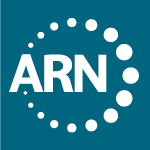Highlights from the November/December Issue of RNJ
If you are an ARN member or a Rehabilitation Nursing Journal (RNJ) subscriber, you should soon receive your November/December 2020 issue in the mail. Check out a preview of three great articles that will be gracing the pages of this issue, or visit the journal online to read the full issue.
Hospital Environmental Effects on Sleep in Adults with Traumatic Brain Injury in Rehabilitation
Persons with traumatic brain injury often have sleep disturbances while hospitalized. Sleep disturbances are another stressor in the recovery of brain injured persons. Amato and Anthony looked at the sleep patterns of such patients in a rehabilitation unit. There was an average number of 5 direct patient care activities (DPCA) for each patient from 11 p.m. to 7 a.m. associated with decreased and restless sleep. Results suggest that decreasing the number of DPCAs could promote sleep in TBI patients. Read Hospital Environmental Effects on Sleep in Adults with Traumatic Brain Injury in Rehabilitation.
State Tested Nursing Assistants' Workplace Experiences That Threaten or Support Intent to Stay
Nursing assistants in long term care have physically demanding positions with heavy workloads. Burnout and turnover of nursing assistants is common, and this turnover threatens the facility's' ability to care for patients. Extrinsic factors, such as low wages and poor benefits, are common to turnover, however difficult to address. Senegal and colleagues sought to determine what intrinsic factors influenced nursing assistants in for-profit skilled nursing facilities to stay in their positions. Developing strategies to influence these intrinsic factors may decrease turnover and prevent burnout. Read State Tested Nursing Assistants' Workplace Experiences That Threaten or Support Intent to Stay.
Do Errorless Methods Improve Discharge Medication Instruction and Adherence?
In healthcare, we talk a lot about the need for appropriate and timely discharge planning. One element of discharge planning is medication teaching. Evidence is growing in support of errorless instructional methods as a best practice in assisting persons with cognitive difficulties to learn new skills and knowledge. Patiag and colleagues examined whether errorless methods would improve patient adherence in this population. Errorless teaching/learning (ETL) is defined as providing learners with generous information, reminders, and cues so that the learner learns the information and does not make mistakes with their medications. Although the results of this study were mixed, ETL may be the next generation of discharge teaching. Read Do Errorless Methods Improve Discharge Medication Instruction and Adherence?.

